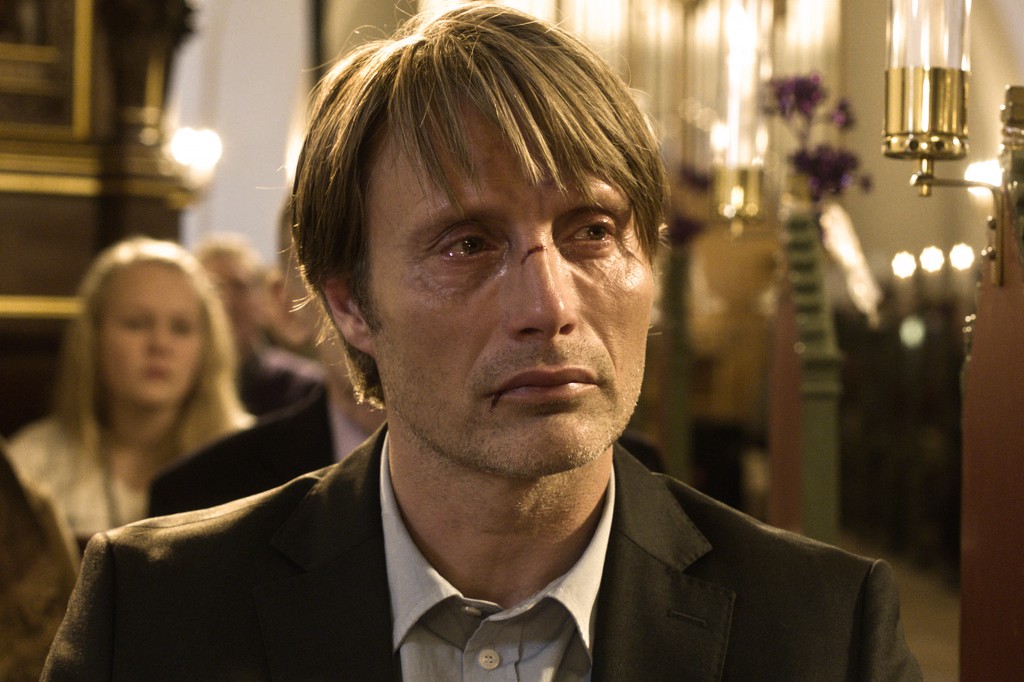
The most exhilarating moment of Cinequest has been the screening of the Danish drama The Hunt (Jagten) – one of the very best films of the year. Mads Mikkelsen won the Best Actor at Cannes for his portrayal of a man whose life is ruined by a false claim of child sexual abuse. You’ll recognize Mikkelsen, a big star in Europe, from After the Wedding and the 2006 Casino Royale (he was the villain with the bleeding eye).
The story is terrifyingly plausible. The protagonist, Lucas, is getting his bearings after a job change and a divorce. He lives in a small Danish town where everyone knows everyone else, next door to his best friend. The best friend drinks too much and his wife is a little high-strung, but Lucas embraces them for who they are. He’s a regular guy who hunts and drinks with his buddies and is adored by the kids at the kindergarten where he works. He’s not a saint – his ex-wife can get him to fly off the handle with little effort.
A little girl hears a sexual reference at home that she does not understand (and no one in the story could ever find out how she heard it). When she innocently repeats it at school, the staff is alarmed and starts to investigate. Except for one mistake by the school principal, everyone in the story acts reasonably. One step in the process builds upon another until the parents become so understandably upset that a public hysteria ensues.
Director Thomas Vinterburg had previously created the underappreciated Celebration (Festen). The Hunt is gripping – we’re on the edges of our seats as the investigation snowballs and Lucas is put at risk of losing everything – his reputation, his job, his child, his friends, his liberty and even his life. Can Lucas be cleared, and, if he is, how scarred will he be? The Hunt is a superbly crafted film with a magnificent performance by Mikkelsen.
